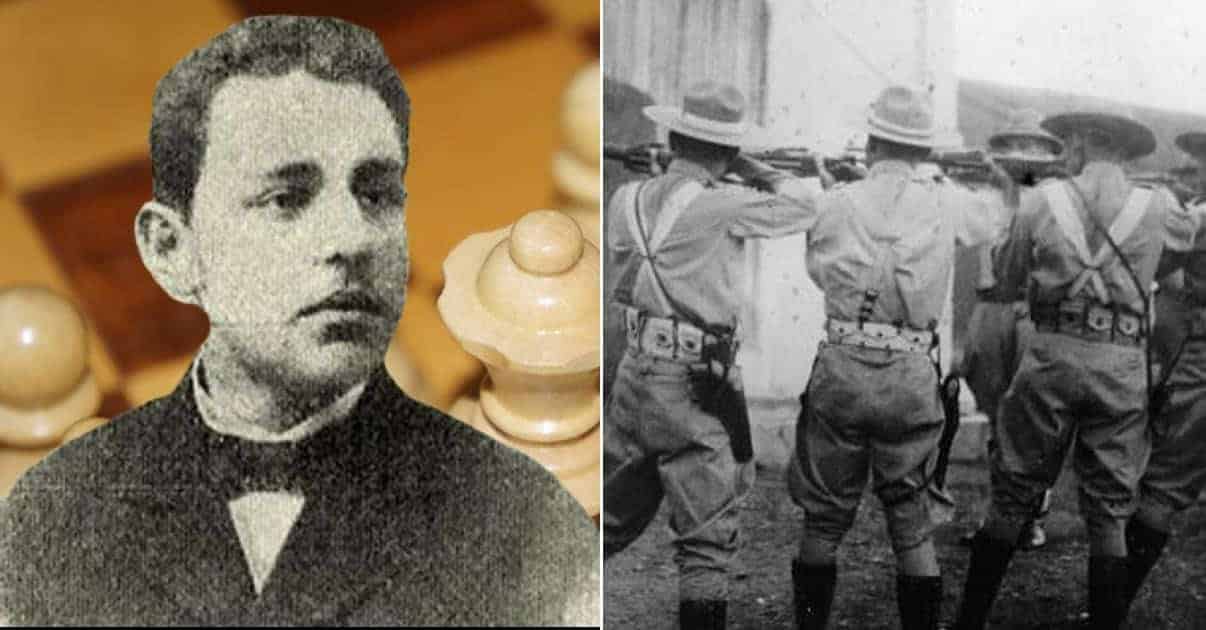Ossip Samoilovich Bernstein was a Ukrainian-born chess player who went on to become a master in the most memorable of ways. He was born in 1882 to a wealthy Jewish family. He started playing chess at the age of nineteen while he was simultaneously studying to become a lawyer.In July of 1902 he played in a blindfold exhibition match against the famous Pillsbury. Pillsbury took that match, but by no means was this going to be one most important matches of Bernstein’s life.
Bernstein earned his master title after winning at the General Chess Federation of Berlin in 1902. He then began winning titles all over the place. Chessmetrics has Bernstein’s highest rating as 2688 and ranked #9 in the world from April 1904 to March 1906. His individual performance rating was 2716 in Ostend 1907, and this was his personal best.

After graduating from law school, Bernstein returned to Moscow and began a career as a successful financial lawyer. He soon thereafter fell in love and married his wife Wilma. The couple had two sons. Before World War I, Bernstein successfully combined his love of chess and law and played heavily on the professional circuit. Through his success in both endeavors, he became quite a wealthy man.
In 1918, Bernstein found himself arrested by the Bolshevik secret police. This was the time of the Red Terror, which resulted in first a provisional government and eventually the establishment of the Socialist Federative Republic.
Bernstein was ordered shot because he was an advisor to bankers. As the firing squad lined up to end Bernstein’s life, a superior officer asked to see the list of prisoners’ names. He recognized Bernstein as a great chessmaster of the previous decade. The officer told Bernstein to play him a game of chess, and if he won, his life would be spared. Bernstein beat the superior officer quickly and he was released a free man.

